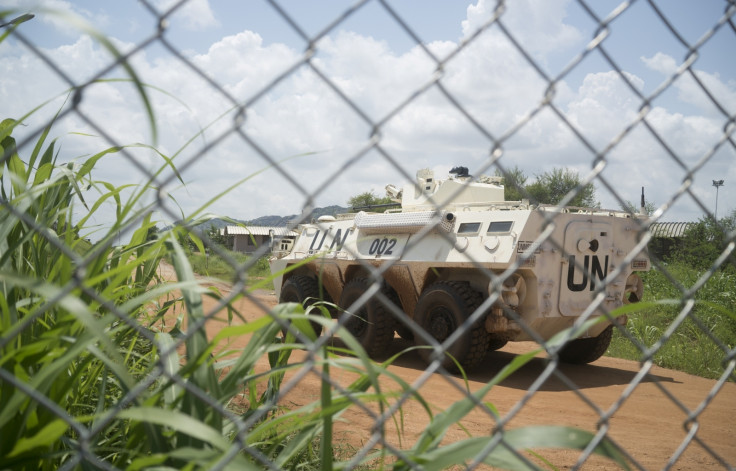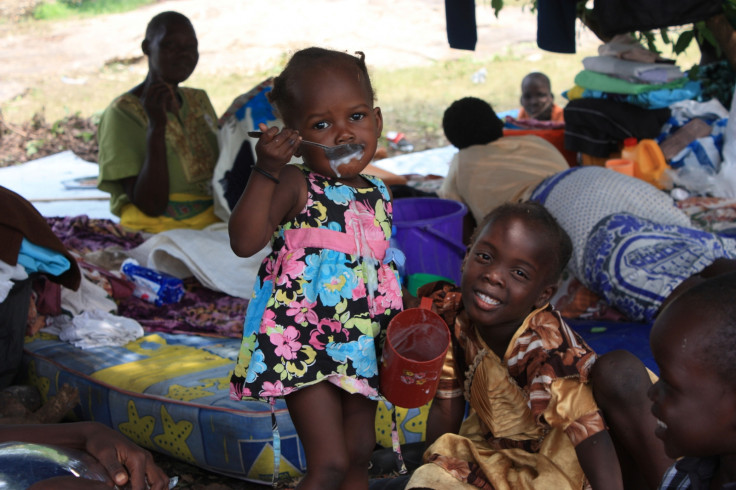South Sudan: President Kiir ponders UN peacekeepers deployment
Extra troops deployment follows deadly fighting that left at least 300 dead in capital Juba.
South Sudan's President Salva Kiir is considering the possibility of allowing a 4,000-strong UN contingent to be deployed to the country. Earlier in August, the UN approved a US-drafted plan, backed by the regional bloc IGAD, to deploy more troops in addition to the 12,000 peacekeepers already present in the country.
The decision came weeks after deadly fighting left at least 300 people dead in the capital Juba.
The South Sudanese government initially opposed the plan, with the South Sudanese envoy to the UK telling IBTimes UK in an exclusive interview the country does not want "to be meddled with by foreign troops".
However, Kiir said at the opening of parliament in Juba on 15 August that he was not opposed to the UN deployment, but that more dialogue was needed.
"We need to be engaged in a discourse and exchange ideas on what is the best way forward, rather than be presented with a fait accompli from outsiders," Kiir said, according to AFP news agency.
"We welcome assistance, we are attentive to advice. But assistance requires dialogue, it should not turn into an imposition that becomes an intervention, in which our sovereignty is compromised and our ability to govern effectively diminishes," he continued.
Meanwhile, the African Union (AU) urged South Sudan's newly appointed vice-president to step down and allow the reinstatement of Riek Machar. Taban Deng Gai, former minister of mining and chief negotiator of the Sudan People's Liberation Movement-in-Opposition ( SPLM-IO), replaced Riek Machar in a move seen by some as an obstacle to a peace deal signed in August 2015.
Machar was replaced after he fled Juba following deadly fighting. He accused government forces of opening fire on his troops, and said he would return to the capital once a third party force was deployed to ensure his and his officials' safety.

South Sudan's descent into civil war
South Sudan's conflict erupted in 2013 when Kiir, of the Dinka ethnic group, fired his deputy Machar, a Nuer, and his cabinet.
South Sudan conflict explained
Ethnic-related violence then spread, with militia groups carrying out attacks in villages and areas known to be inhabited by either the Dinka or Nuer tribes. More than 10,000 have been killed amid allegations of crimes against humanity committed by both sides, including rape, torture and use of child soldiers. At least two million people have also been displaced.
Machar's return to South Sudan and his reinstatement as vice-president in April had restored hopes for the implementation of the peace process. However, tensions have been running high since his return.
August 2015 peace deal: The key points
- Both parties commit to immediate cessation of violence
- Machar to be reinstated as vice-president
- Foreign troops to be withdrawn
- Military personnel in Juba to be replaced by police and guards
- Creation of transitional government that will stay in power for 30 months
- Presidential elections to be held 30 days before end of transitional government mandate
- Probe into abuses committed during conflict (for the full document, click here)

© Copyright IBTimes 2025. All rights reserved.






















